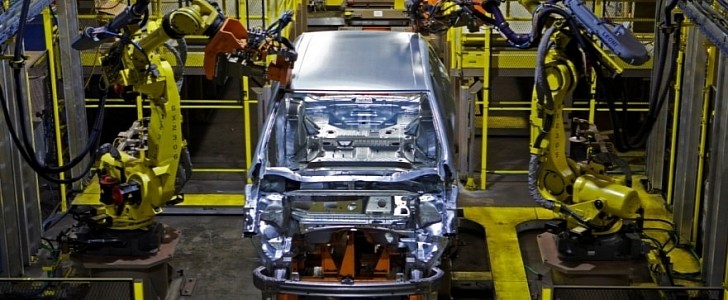Depending on who you ask, the chip shortage could come to an end this year or continue until at least 2023. The mixed thoughts on the semiconductor crisis emphasize just how volatile the current chip supply has become, especially in key sectors like the automotive industry.
U.S. Commerce Secretary Gina Raimondo is one of those who don’t expect the chip struggle to be over this year, explaining that fixing the constrained supply is impossible overnight.
Raimondo has called for Congress to approve the America COMPETES Act of 2022 bill that would allow for massive investments in semiconductor manufacturing in the United States, therefore addressing the shortage using domestic capacity.
The U.S. Commerce Secretary told reporters that she’s been in touch with companies that are willing to invest in local chip production, and most warned that without government funding, they would simply build their manufacturing facilities in other parts of the world.
But even if the United States eventually starts making chips in local plants, the shortage is unlikely to be resolved in the short term.
Intel, for example, is committed to investing $20 billion in a semiconductor plant in Ohio, and while the production is projected to begin as soon as possible, carmakers need semiconductors right here and right now. Taiwan Semiconductor is also planning to spend big on U.S. chip production, with a manufacturing plant to be set up in Arizona.
The production at this facility is scheduled to begin in 2024.
In the meantime, local carmakers are struggling with the very limited supply. Ford has recently announced that it’s suspending the manufacturing at several facilities because of the lack of chips, with the company’s most popular models among the ones to be affected.
The production of the F-150, Ford’s best-selling model right now, will also be slowed down due to the disruptions caused by the lack of chips.
Raimondo has called for Congress to approve the America COMPETES Act of 2022 bill that would allow for massive investments in semiconductor manufacturing in the United States, therefore addressing the shortage using domestic capacity.
The U.S. Commerce Secretary told reporters that she’s been in touch with companies that are willing to invest in local chip production, and most warned that without government funding, they would simply build their manufacturing facilities in other parts of the world.
But even if the United States eventually starts making chips in local plants, the shortage is unlikely to be resolved in the short term.
Intel, for example, is committed to investing $20 billion in a semiconductor plant in Ohio, and while the production is projected to begin as soon as possible, carmakers need semiconductors right here and right now. Taiwan Semiconductor is also planning to spend big on U.S. chip production, with a manufacturing plant to be set up in Arizona.
The production at this facility is scheduled to begin in 2024.
In the meantime, local carmakers are struggling with the very limited supply. Ford has recently announced that it’s suspending the manufacturing at several facilities because of the lack of chips, with the company’s most popular models among the ones to be affected.
The production of the F-150, Ford’s best-selling model right now, will also be slowed down due to the disruptions caused by the lack of chips.











